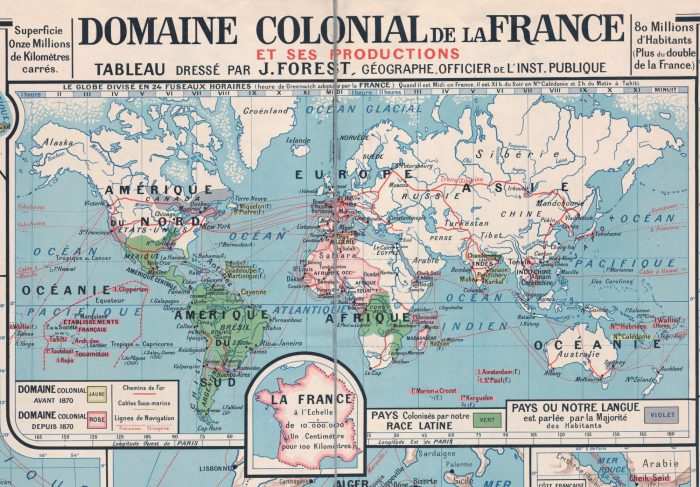Jules ferry on french colonial expansion – Jules Ferry, a prominent figure in French history, played a pivotal role in shaping the nation’s colonial expansion during the late 19th century. This article delves into Ferry’s views on colonialism, his involvement in French colonial policy, and the lasting impact of his policies on both France and its colonies.
Ferry’s belief in the civilizing mission of France, coupled with his vision for colonies as a means to strengthen the nation, drove his unwavering support for colonial expansion. As Minister of Education and Prime Minister, Ferry implemented policies that established French protectorates in Tunisia and Madagascar, pacified and consolidated French control in Algeria, and extended French influence in Southeast Asia.
Jules Ferry’s Views on French Colonial Expansion
Jules Ferry, a prominent French politician in the late 19th century, was a staunch advocate for French colonial expansion. His views were shaped by a belief in the civilizing mission of France and the importance of colonies for strengthening the nation.
Ferry argued that France had a moral obligation to spread its superior culture and values to “backward” societies. He believed that colonies could provide raw materials, markets for French goods, and opportunities for French settlers. Additionally, Ferry saw colonial expansion as a way to boost French national prestige and power.
Ferry’s Role in French Colonial Policy

Ferry played a key role in the establishment of French protectorates in Tunisia (1881) and Madagascar (1883). He also developed a strategy for pacifying and consolidating French control in Algeria, which involved military campaigns and the establishment of French settlements.
Ferry’s policies had a significant impact on the indigenous populations of the colonies. French rule often led to the displacement of local people, the disruption of traditional economies, and the imposition of French laws and customs.
Impact of Ferry’s Colonial Policies
French colonialism brought about significant economic, social, and cultural changes in Africa and Southeast Asia. The introduction of cash crops and the development of infrastructure led to economic growth in some areas, but also created new forms of dependency and exploitation.
French colonialism also had a profound impact on race relations and national identity in France. The myth of French superiority and the concept of a “civilizing mission” justified the domination of indigenous populations and contributed to the development of racist attitudes.
Comparison with Other Colonial Powers
Ferry’s colonial policies were similar to those of other European powers, such as Britain and Germany. All three countries believed in the superiority of their own cultures and saw colonies as a source of wealth and power.
However, there were also some differences in their approaches. For example, Britain focused more on establishing settler colonies, while France preferred to establish protectorates and exploit existing local resources.
Essential Questionnaire: Jules Ferry On French Colonial Expansion
What were Jules Ferry’s motivations for promoting colonial expansion?
Ferry believed in the civilizing mission of France and saw colonies as a means to strengthen the nation’s economy, military, and prestige.
What was the impact of Ferry’s policies on the indigenous populations of the colonies?
Ferry’s policies led to the displacement of indigenous peoples, the suppression of local cultures, and the exploitation of natural resources.
How does Ferry’s colonial legacy continue to be debated today?
Ferry’s legacy is contested, with some arguing that his policies laid the foundation for France’s global influence, while others criticize the negative consequences of colonialism on the colonized peoples.